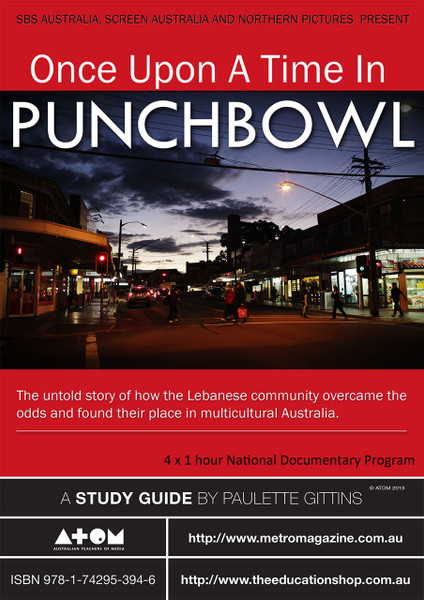Product Overview
What do you know about the Lebanese community in Australia? Why did they choose to immigrate to this country? And when? And what was the response to their arrival in our multicultural society?
And by the way, just what is 'multiculturalism'?
These questions – and more – are answered in SBS and Screen Australia's Once Upon a Time in Punchbowl, a four-part documentary series about the hitherto untold story of what it’s like to be Lebanese and call Australia home – told for the first time by those who were there. Their story begins when large numbers of Lebanese migrants flooded into Australia in the 1970s; many were Muslim, most were traumatised by civil war and all were desperate to build a better future. Over the coming decades, these new Australians struggled to establish a life in their adopted country.
Following the success of SBS Australia's Once Upon a Time in Cabramatta, which told the story of how the Vietnamese found their place in multicultural Australia, this National Documentary Program Series, broadcast in June–July 2014, does the same for the Lebanese community.
A series of interwoven family stories are presented to us from the Lebanese community of Punchbowl in south-west Sydney, a suburb that became one of Australia's most controversial Middle Eastern communities. Community leaders, police, families, ex-criminals and ordinary individuals combine in a true insiders’ account to tell the compelling and dramatic story of a proud and resilient community under intense pressure and scrutiny.
This study guide to Once Upon a Time in Punchbowl aims to:
- complement and explain the history of the Australian Lebanese community in south-west Sydney in the context of Australia’s wider Lebanese community;
- provide further information on how the community’s troubles have often come from external pressures and injustices rather than faults of their own;
- Assess these personal archives, thus providing more data for an alternative view to historical media;
- Examine this migrant experience in the context of Australia’s cultural and social history, and how their arrival has helped shape this;
- Examine themes of identity, multiculturalism and racism – themes that are at the forefront of national debate today;
- Link this series to appropriate areas of the national and state curricula;
- Provide activities and tasks to utilise this series effectively.







